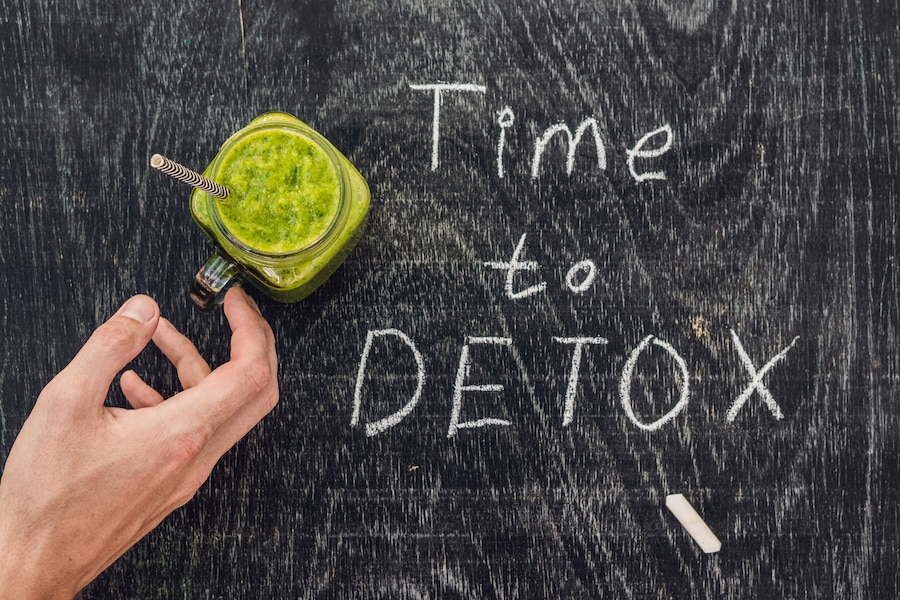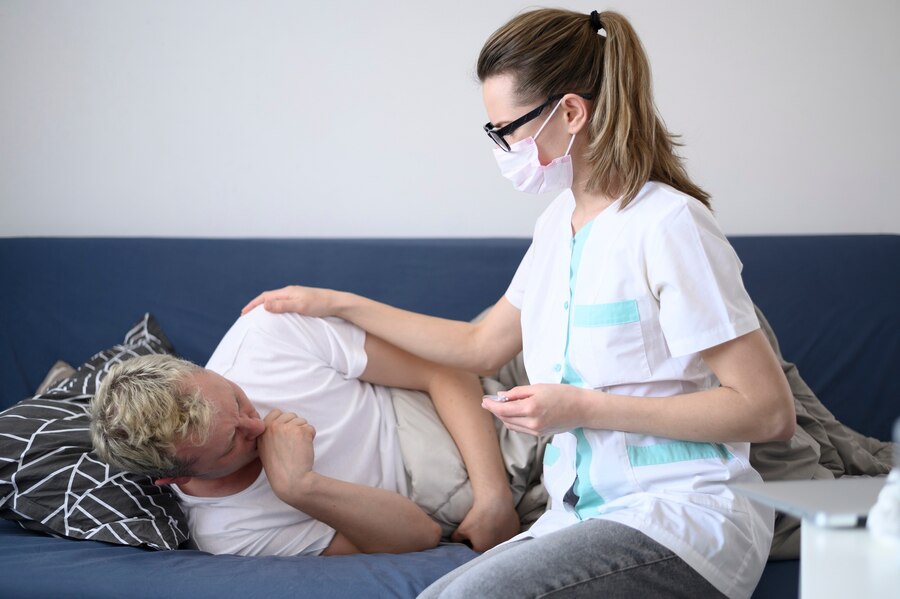Recovery from addiction is a journey marked by milestones, each step forward a testament to courage, resilience, and personal growth. For those navigating this path, celebrating achievements—big and small—plays a crucial role in reinforcing progress and fostering a positive outlook on the future. At the heart of this journey lies All American Detox, a beacon of support and guidance for individuals committed to reclaiming their lives from substance abuse. Let’s delve into the importance of celebrating milestones in recovery and how All American Detox advocates for this pivotal aspect of healing.
In this journey, the act of celebrating milestones, both large and small, holds profound importance. It serves as a powerful acknowledgment of the efforts and dedication individuals commit to their recovery journey. Recognizing these milestones not only boosts self-esteem but also reinforces the belief in one’s ability to overcome challenges and build a brighter future. It fosters a positive outlook, encouraging individuals to continue striving towards their goals with renewed determination and hope.
The Significance of Milestones in Recovery
In the depths of addiction, life often feels like an uphill struggle against overwhelming odds. Every milestone achieved in the journey towards sobriety becomes a beacon of hope and a testament to the inner strength and resilience of the individual. Whether it’s successfully completing detoxification, reaching the milestone of a month of sobriety, achieving personal growth goals, or celebrating anniversaries of sobriety, each of these moments carries profound significance.
These milestones in recovery serve as tangible markers of progress and perseverance. They signify not only the physical and mental fortitude required to overcome addiction but also the emotional growth and renewed sense of purpose that individuals experience along the way. Each milestone is a testament to the commitment to live a healthier, substance-free life and to reclaim autonomy and well-being.
Celebrating these milestones is crucial in recovery as it acknowledges the hard-fought victories and reinforces positive behaviors. It provides individuals with a sense of accomplishment and motivation to continue on their path towards lasting recovery. By recognizing and honoring these achievements, individuals build confidence in their ability to navigate challenges and resist triggers, fostering a stronger foundation for long-term sobriety.
At the core of milestone celebrations is the recognition that each step forward, no matter how small, represents a triumph over the grip of addiction. These moments of celebration not only inspire hope and determination but also serve as reminders of the support and encouragement available from peers, loved ones, and professional caregivers. They reinforce the belief that recovery is not just about abstaining from substances but also about embracing a new way of living—a life filled with purpose, fulfillment, and personal growth.
Validation of Progress
Acknowledging milestones in recovery is crucial as it validates the immense effort and dedication individuals pour into their journey towards healing. Each milestone achieved serves as tangible proof of progress and a testament to the resilience and determination required to overcome addiction. Whether it’s completing a detox program, reaching a milestone in sobriety, or achieving personal goals related to health and well-being, each step forward signifies meaningful change and personal growth.
Validation of progress through milestone acknowledgment is more than just a recognition of achievements; it’s a reaffirmation of the individual’s commitment to their recovery journey. It acknowledges the daily challenges faced and the courage it takes to confront them. By celebrating milestones, whether big or small, individuals are encouraged to continue their path with renewed motivation and confidence.
Boosting Motivation
Celebrating milestones in recovery serves as powerful motivational fuel, igniting renewed determination and optimism in individuals on their journey towards sobriety. These celebrations are pivotal moments that acknowledge and amplify the sense of accomplishment, reinforcing the belief that each step towards recovery is significant and worth celebrating.
Motivation in recovery often stems from recognizing progress and achievements. By celebrating milestones such as completing detox, reaching sobriety milestones, or achieving personal goals, individuals are reminded of their capacity for change and growth. These celebrations provide tangible evidence of success and serve as reminders that sobriety is not only achievable but also a journey filled with meaningful milestones worth striving for.
Moreover, celebrations act as a beacon of optimism. They instill a sense of hope and possibility, illustrating that despite challenges, individuals can navigate their path to recovery with resilience and courage. The positive reinforcement from celebrating milestones reinforces the belief that sobriety is a rewarding goal worth pursuing, motivating individuals to stay committed to their recovery efforts.
Building Confidence
Overcoming addiction is a profound journey that requires individuals to confront deep-seated fears and insecurities. Celebrating milestones along this path plays a crucial role in building confidence and self-esteem, empowering individuals to face challenges with resilience and conviction.
When individuals in recovery celebrate milestones such as completing detox, achieving sobriety milestones, or reaching personal growth goals, it serves as a powerful validation of their efforts. These celebrations acknowledge the courage and determination it takes to overcome addiction, reinforcing the belief that individuals are capable of creating positive change in their lives. This validation boosts self-confidence by highlighting personal strengths and accomplishments, which in turn strengthens their resolve to continue on their journey towards recovery.
Fostering Support Networks
Celebrating milestones in recovery serves as a powerful catalyst for fostering support networks and building a sense of community among individuals, their friends, family, and support systems. These celebrations create meaningful opportunities to come together, share achievements, and reinforce the collective commitment to the journey of recovery.
When individuals in recovery celebrate milestones such as reaching sobriety milestones, completing treatment programs, or achieving personal growth goals, it becomes a shared achievement. These gatherings bring friends, family members, peers, and caregivers together, creating a supportive environment where everyone plays a role in acknowledging and encouraging progress. This collective celebration not only uplifts the individual but also strengthens bonds within the community, reinforcing the understanding that recovery is a shared endeavor.
Furthermore, these gatherings promote solidarity and camaraderie. They create opportunities for individuals to share their stories, experiences, and aspirations, fostering a deeper understanding and connection among participants. By coming together to celebrate milestones, individuals in recovery build a network of allies who can offer guidance, inspiration, and companionship throughout their journey.

All American Detox: A Partner in Celebrating Milestones
At the core of All American Detox’s philosophy is a deep empathy and insight into the emotional and psychological complexities of recovery. They understand that celebrating milestones goes beyond marking time; it’s about recognizing the immense courage and resilience required to conquer addiction. All American Detox in Los Angeles County is dedicated to providing personalized treatment plans, compassionate care, and holistic healing approaches that empower individuals to celebrate their milestones with dignity and optimism.
All American Detox emphasizes the importance of personalized treatment plans tailored to each individual’s unique needs and circumstances. By addressing the physical, emotional, and psychological aspects of addiction, they help individuals navigate their recovery journey with comprehensive support. This personalized approach not only enhances the effectiveness of treatment but also fosters a sense of empowerment and ownership in achieving milestones.
Compassionate care lies at the heart of All American Detox’s commitment to supporting individuals in recovery. They provide a nurturing environment where individuals feel understood, respected, and supported throughout their journey. This compassionate approach extends to celebrating milestones, ensuring that each achievement is acknowledged with sensitivity and encouragement.
Strategies for Celebrating Milestones
Effective celebration of milestones involves thoughtful planning and consideration of what resonates most with the individual in recovery. Here are some strategies advocated by All American Detox to mark these significant moments:
Personal Reflection
Reflection is a powerful tool in the journey of recovery, allowing individuals to pause and acknowledge their progress, achievements, and personal growth milestones. Taking time to reflect can significantly enhance self-validation and recognition of the strides made towards sobriety.
Journaling or writing a letter to oneself serves as a structured way to capture thoughts, emotions, and experiences throughout the recovery process. It encourages individuals to articulate their feelings, track their progress, and celebrate their successes, big and small. Here’s how individuals can effectively use journaling or writing as tools for personal reflection in recovery:
- Capture Milestones and Achievements: Start by jotting down specific milestones achieved along the recovery journey. These could include completing detox, reaching sobriety milestones (days, weeks, months), achieving personal goals related to health or relationships, or overcoming challenges.
- Express Emotions and Insights: Use journaling as a safe space to express emotions, whether it’s joy, relief, frustration, or uncertainty. Reflect on how these emotions have evolved over time and what insights they reveal about personal growth and resilience.
- Celebrate Progress: Take moments to celebrate progress, no matter how small. Reflect on the changes in behavior, mindset, and relationships that signify positive steps towards a healthier lifestyle.
- Set Intentions and Goals: Write about intentions for the future and set achievable goals. This could involve plans for continued sobriety, personal development aspirations, or ways to strengthen support networks.
- Practice Gratitude: Incorporate gratitude into journal entries by reflecting on the people, experiences, and resources that have supported the recovery journey. Gratitude helps shift focus towards positive aspects of life and reinforces motivation to maintain progress.
- Track Challenges and Resilience: Document challenges faced and how they were overcome. Reflect on moments of resilience and lessons learned from setbacks, highlighting personal strengths and strategies for coping.
- Review and Reflect Regularly: Schedule regular times to review journal entries and letters. This allows individuals to track their growth over time, identify patterns of progress, and reinforce commitment to ongoing recovery efforts.
Through journaling or writing letters to oneself, individuals in recovery can deepen self-awareness, enhance self-compassion, and strengthen their commitment to sobriety. It serves as a personal testament to the journey traveled and a reminder of the courage and determination that continue to propel them forward. Reflection not only validates achievements but also nurtures a sense of purpose and direction in pursuing a fulfilling life free from addiction.
Group Celebrations
Organizing group celebrations or meetings for individuals in recovery to share their milestones can be incredibly beneficial, fostering a sense of camaraderie, mutual support, and community within the recovery journey. Here’s how to effectively organize and facilitate such gatherings:
- Purpose and Structure: Define the purpose of the gathering, which is to celebrate milestones and achievements in recovery. Create a structured agenda that allows each participant to share their milestones, challenges overcome, and personal reflections.
- Invitations and Inclusivity: Invite individuals in recovery, their friends, family members, and supportive peers to participate. Ensure inclusivity and create a welcoming environment where everyone feels comfortable sharing their experiences.
- Facilitation: Designate a facilitator who can guide the meeting, encourage participation, and ensure that each individual has an opportunity to share. The facilitator can also set ground rules for respectful listening and confidentiality to maintain a safe space.
- Sharing Milestones: Encourage participants to share specific milestones they’ve achieved, such as days or months of sobriety, completing treatment programs, achieving personal goals, or significant moments of growth. Celebrate each milestone with applause, words of encouragement, or symbolic gestures of recognition.
- Reflection and Support: After sharing milestones, allow time for reflection and discussion. Participants can reflect on their journey, discuss challenges faced, and offer insights or advice based on their experiences. This exchange promotes empathy, understanding, and mutual support among peers.
- Encouragement and Affirmation: Provide opportunities for participants to affirm and encourage each other. Positive feedback, words of affirmation, and expressions of support can boost morale and reinforce the belief in collective strength and resilience.
- Activities and Bonding: Incorporate activities that promote bonding and solidarity among participants. This could include group exercises, team-building activities, or creative expressions such as art or music that reflect on the themes of recovery and personal growth.
- Continued Support: Ensure that the gathering also emphasizes ongoing support beyond the meeting. Share resources, information about support groups, and opportunities for further engagement within the community to sustain motivation and connection.
By organizing group celebrations for milestones in recovery, individuals not only receive validation and support for their achievements but also contribute to a supportive network that enhances their overall well-being. These gatherings reinforce the community aspect of recovery, offering a sense of belonging, encouragement, and inspiration to continue on the path towards lasting sobriety.
Rewards and Treats
Treating oneself to meaningful rewards and treats serves as a powerful affirmation of personal progress and self-care in the journey of recovery. These acts not only celebrate milestones achieved but also reinforce the importance of nurturing oneself along the path to sobriety.
For individuals in recovery, these rewards act as tangible symbols of dedication and resilience. They provide moments of joy and fulfillment, reminding individuals of their capacity for positive change and growth. Whether it’s indulging in a favorite meal that signifies comfort and celebration, pampering oneself with a relaxing spa day to promote physical and emotional well-being, or investing in a hobby-related purchase that ignites passion and creativity, each reward serves to uplift spirits and reinforce the commitment to self-improvement.
Symbolic Gestures
Creating symbolic rituals or gestures to mark milestones in recovery can add profound meaning and significance to personal achievements, serving as visual reminders of progress and resilience. These acts not only honor the journey of recovery but also provide moments of reflection, gratitude, and empowerment. Here’s how individuals can incorporate symbolic gestures into their milestone celebrations:
Planting a tree can symbolize growth, renewal, and the nurturing of new beginnings. Each milestone in recovery can be commemorated by planting a tree, whether in a personal garden or a meaningful location. Watching the tree grow and flourish mirrors the individual’s journey towards health and wholeness, rooted in perseverance and resilience.
Crafting a commemorative item, such as a piece of artwork or a personalized token, allows individuals to express their creativity and reflect on their achievements. This could involve creating a collage of meaningful images and words that represent milestones and moments of personal growth. Displaying this artwork serves as a constant reminder of progress and the journey towards recovery.
These symbolic gestures are not just rituals; they are acts of self-affirmation and empowerment. They provide tangible ways to honor achievements, commemorate challenges overcome, and reinforce the commitment to continued growth and healing. By integrating symbolic rituals into milestone celebrations, individuals in recovery create meaningful connections to their journey and cultivate a sense of purpose and accomplishment that inspires ongoing progress.
Setting New Goals
Using milestones in recovery as springboards for setting new, realistic goals is a powerful way to foster continued growth and transformation. Each milestone achieved signifies progress and resilience, laying a foundation for individuals to envision and pursue a fulfilling future free from addiction.
Setting new goals in recovery involves identifying aspirations that align with personal values, interests, and long-term vision. For example, individuals may choose to pursue further education or training to enhance their skills and career prospects. This goal not only promotes professional growth but also reinforces a sense of purpose and accomplishment.
Embarking on a new career path can be another meaningful goal. Whether transitioning to a new field or advancing within a current profession, setting career goals encourages individuals to leverage their strengths and aspirations, fostering a sense of direction and achievement.
Deepening personal relationships is also a valuable goal in recovery. This may involve strengthening bonds with family members, rebuilding trust in friendships, or cultivating new supportive relationships within recovery communities. These connections provide emotional support, encouragement, and a sense of belonging, which are essential for maintaining sobriety and overall well-being.
Recognizing Milestones in Recovery at All American Detox
In the journey of recovery, celebrating milestones is more than a ritual; it is a testament to resilience, courage, and the unwavering commitment to a life free from addiction. All American Detox stands alongside individuals, offering unwavering support and personalized care to navigate this transformative journey. By recognizing and celebrating milestones, individuals affirm their progress, cultivate self-worth, and embrace the promise of a brighter tomorrow. As you embark on your own recovery journey or support someone through theirs, remember to honor every milestone, for each step forward is a triumph worth celebrating. If you or someone you know is seeking support in their recovery journey, can reach out to us.
FAQ’S
1. Recovery is a journey, not a destination. Why is celebrating milestones important in addiction recovery?
Answer: Recognizing milestones at All American Detox is crucial. It reinforces positive behaviors, boosts motivation, and reminds you of the progress you’ve made on your recovery journey.
2. What are some examples of milestones worth celebrating in addiction recovery?
Answer: Milestones at All American Detox come in all shapes and sizes. Here are some examples:
- Completing detox and entering treatment
- Staying sober for a certain number of days, weeks, or months
- Successfully completing therapy sessions or overcoming specific challenges
- Repairing relationships and regaining trust from loved ones
- Achieving personal goals set at the beginning of your recovery journey
3. How can celebrating milestones at All American Detox help prevent relapse?
Answer: Recognizing your achievements at All American Detox strengthens your commitment to recovery. It boosts your confidence, helps manage cravings, and reminds you of the positive aspects of sobriety.
4. I feel uncomfortable celebrating my recovery milestones. Is that normal?
Answer: Absolutely! Celebrating achievements can feel awkward at first. All American Detox encourages you to find ways to acknowledge your progress that feel comfortable for you.
5. How can I celebrate recovery milestones in a meaningful way at All American Detox?
Answer: All American Detox encourages personalized celebrations. Here are some ideas:
- Treat yourself to a non-alcoholic reward
- Spend time with supportive friends or family
- Do something you enjoy that promotes relaxation and well-being
- Reflect on your journey and write down your progress in a journal
- Share your success with a sponsor, therapist, or recovery group for support
6. Can celebrating milestones at All American Detox become a trigger for relapse?
Answer: It’s unlikely if done mindfully. All American Detox can help you celebrate responsibly. Focus on the achievement, not substances. Surround yourself with support, and plan healthy activities for your celebration.
7. How can friends and family support someone celebrating recovery milestones at All American Detox?
Answer: Supportive loved ones are vital in recovery. Here’s how to help:
- Recognize their achievements and express your pride.
- Offer encouragement and support for their continued sobriety.
- Engage in activities that promote healthy living and don’t involve substances.
- Be understanding if they’re uncomfortable with big celebrations.
8. Does All American Detox offer any resources to help celebrate recovery milestones?
Answer: Yes! All American Detox staff can suggest ideas for celebrating milestones and help you create a personalized plan that feels comfortable and supportive.
9. Is it okay to celebrate milestones at All American Detox even if I haven’t reached my ultimate recovery goal?
Answer: Absolutely! Recovery is a process filled with smaller achievements. All American Detox encourages celebrating every step forward, no matter how small.
10. Is there a risk of becoming complacent by celebrating milestones at All American Detox?
Answer: Not if done correctly. All American Detox focuses on celebrating progress while reminding you to stay committed to your ongoing recovery journey.




















